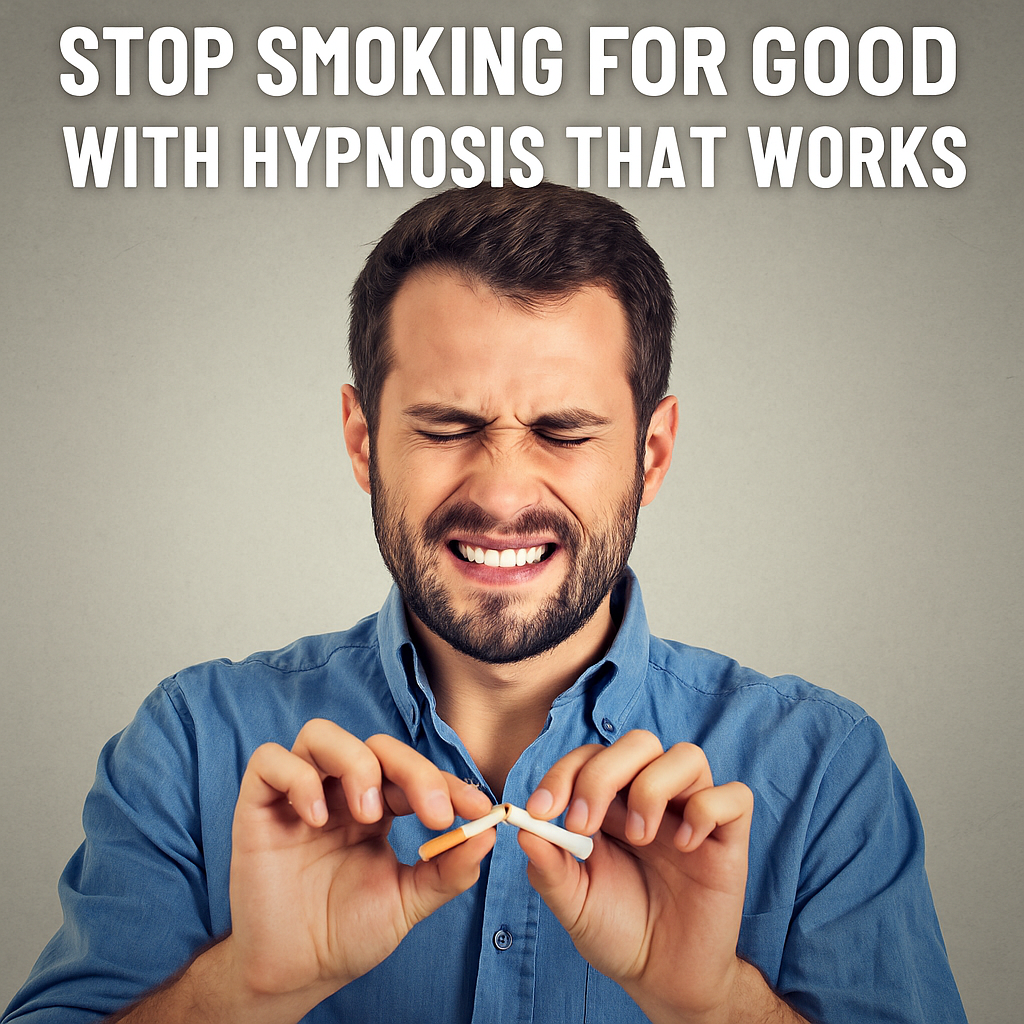Do You Have Regrets?
Tim Shurr • April 11, 2023
The post Do You Have Regrets? first appeared on Indy Hypnosis Center.

The difference between winning and losing in sports often comes down to more than physical strength or skill. At the highest levels, athletes know that the real edge lies in the mind. Confidence, focus, and the ability to stay calm under pressure are what separate champions from the rest of the field. At Indy Hypnosis, athletes are finding that hypnosis provides the mental boost they need to reach new levels of performance. Sports psychologists have long said that competition is as much a mental game as a physical one. Even the best training can fall apart when nerves take over or self-doubt creeps in. Hypnosis addresses these mental blocks directly by reprogramming the subconscious mind to respond with confidence, clarity, and determination. One young athlete came to Indy Hypnosis struggling with performance anxiety. On practice days, he excelled. But when it was time to compete, his nerves took control and his results fell short. After a series of hypnosis sessions, he broke through the mental barrier and went on to set five new personal records. “I didn’t feel nervous anymore,” he explained. “I felt like I could just do what I had trained to do.” Professional and recreational athletes alike report similar stories. Golfers find their swing more consistent. Runners feel a newfound endurance. Weightlifters hit personal bests without the voice of doubt holding them back. What all these athletes share is the realization that once the mind stops working against them, their natural ability shines. Hypnosis also helps with recovery. Injuries often leave behind not only physical scars but also mental ones. An athlete recovering from a torn ligament may hesitate, afraid of pushing too hard and risking another injury. Through hypnosis, those fears can be reframed, allowing the athlete to return with full confidence and a stronger focus on healing. Science backs up what these athletes describe. Studies show that hypnosis can improve concentration, reduce stress hormones, and increase motivation. By visualizing success under hypnosis, athletes create mental “rehearsals” that make the real event feel familiar, boosting confidence and performance on game day. For many, the biggest surprise is how natural the shift feels. They do not have to force positivity or pretend to be confident. Instead, confidence emerges as the default setting. “It wasn’t about tricking my brain,” one athlete shared. “It was about finally trusting myself.” Sports are built on fine margins, and those margins are often mental. With hypnosis, athletes are discovering that the edge they have been searching for has been inside them all along—waiting to be unlocked. If you are ready to take your performance to the next level, schedule a free consultation with Indy Hypnosis today and discover how hypnosis can help you win from the inside out.

Stress has become the background noise of modern life. From deadlines at work to family responsibilities and the constant buzz of technology, it is no wonder that anxiety levels are at an all-time high. For many people, the pressure feels relentless, and traditional coping strategies like deep breathing or exercise often provide only temporary relief. At Indy Hypnosis, clients are discovering that hypnosis offers a deeper, more lasting solution. Unlike quick fixes, hypnosis works by calming the mind at its source. Stress is not just a reaction to circumstances; it is also the product of thought patterns that magnify worry and fear. The subconscious mind, which governs much of our emotional response, often gets stuck in loops of “what if” thinking. Hypnosis gently interrupts those loops, replacing them with calmer, more empowering messages. Clients frequently describe their sessions as surprisingly peaceful. One woman said it felt like “an hour-long vacation for my brain.” By the end, her racing thoughts had slowed, and she carried that calm with her long after the session was over. Another client, who had battled panic attacks for years, reported that the intensity and frequency of her episodes decreased dramatically after beginning hypnosis. Instead of feeling overwhelmed, she now feels in control. Science supports these experiences. Studies show that hypnosis can lower heart rate, ease tension, and reduce cortisol, the stress hormone that wreaks havoc on the body. This makes it more than just a mental shift; it is a full-body reset. Clients often notice they sleep better, concentrate more easily, and approach daily challenges with a clearer head. Perhaps the most striking difference is how natural it feels. Instead of forcing relaxation, hypnosis allows the mind to release its grip on anxious thoughts. As one client explained, “It wasn’t about pushing stress away. It was like my brain finally remembered how to relax.” Stress and anxiety do not have to rule life. With the One Belief Away Method, people are finding that the heavy burden of worry can be lifted, replaced with a steady confidence that carries them through each day. If you are ready to quiet the noise of stress and experience lasting calm, schedule your free consultation with Indy Hypnosis today. Relief is closer than you think.

For decades, quitting smoking has been one of the hardest challenges people face. Nicotine patches, chewing gum, prescription medications, and countless “quit plans” have promised results, yet relapse rates remain high. Many smokers desperately want to stop, but the grip of addiction seems stronger than sheer willpower. At Indy Hypnosis, however, clients are finding a path to freedom that feels both possible and permanent. The secret lies in addressing the mind, not just the habit. Smoking is not only a physical addiction but also a deeply ingrained behavioral pattern. For many, lighting up is tied to stress relief, social rituals, or even simple routines like a morning coffee. Trying to stop without addressing these subconscious connections often leads to frustration and relapse. Through hypnosis, those patterns begin to shift. The subconscious mind, which controls much of our automatic behavior, can be reprogrammed to disconnect cigarettes from their old triggers. Instead of fighting the urge every time stress arises, clients find the desire to smoke naturally fading. One client who smoked for thirty years described the experience as “like flipping a switch.” After her session, she no longer craved cigarettes, and the thought of smoking felt out of place rather than tempting. Another powerful story came from Yovanna, who struggled with smoking for three decades. She had tried everything else and felt convinced she would never break free. After working with Indy Hypnosis, she walked away from cigarettes with a sense of calm rather than struggle. What surprised her most was how natural it felt. “I wasn’t forcing myself to quit,” she explained. “I just didn’t want to smoke anymore.” Beyond individual accounts, science has also shown hypnosis to be effective in smoking cessation. By directly addressing the subconscious, it bypasses the endless battle of willpower and offers a smoother path forward. Hospitals and clinics around the world now include hypnosis as part of smoking cessation programs, validating what clients at Indy Hypnosis have been experiencing for years. What makes this method stand out is not just the success of quitting but the permanence of the change. Instead of feeling deprived, clients feel free. Instead of counting days since their last cigarette, they begin building new routines filled with energy, confidence, and health. Breaking free from smoking is not about giving something up. It is about reclaiming life. Clients report breathing easier, feeling more energetic, and rediscovering a sense of control they thought they had lost forever. If you are ready to stop smoking for good and experience true freedom, schedule your free consultation with Indy Hypnosis today. The next chapter of your life can begin smoke-free.

 Tim Shurr
Tim Shurr